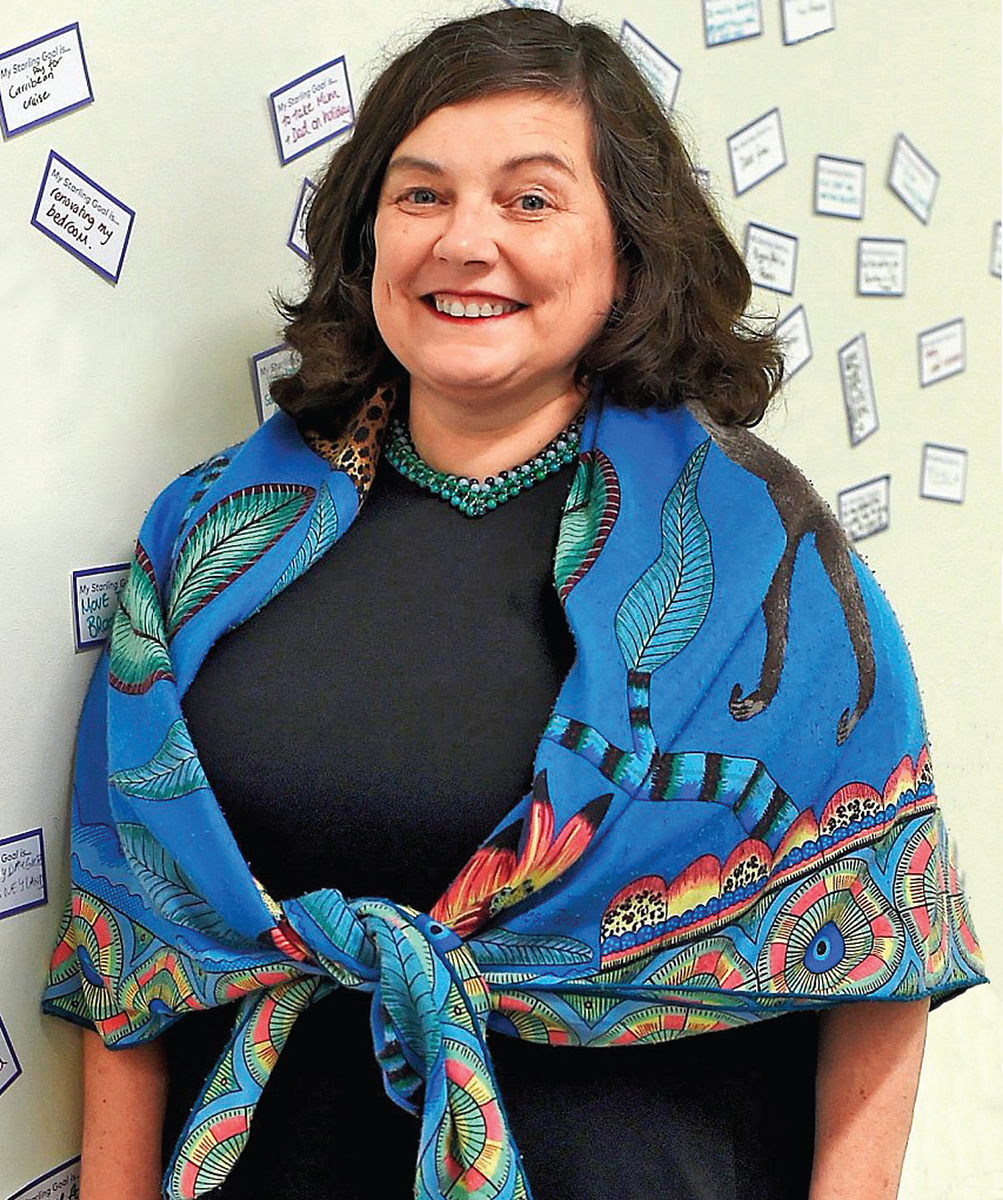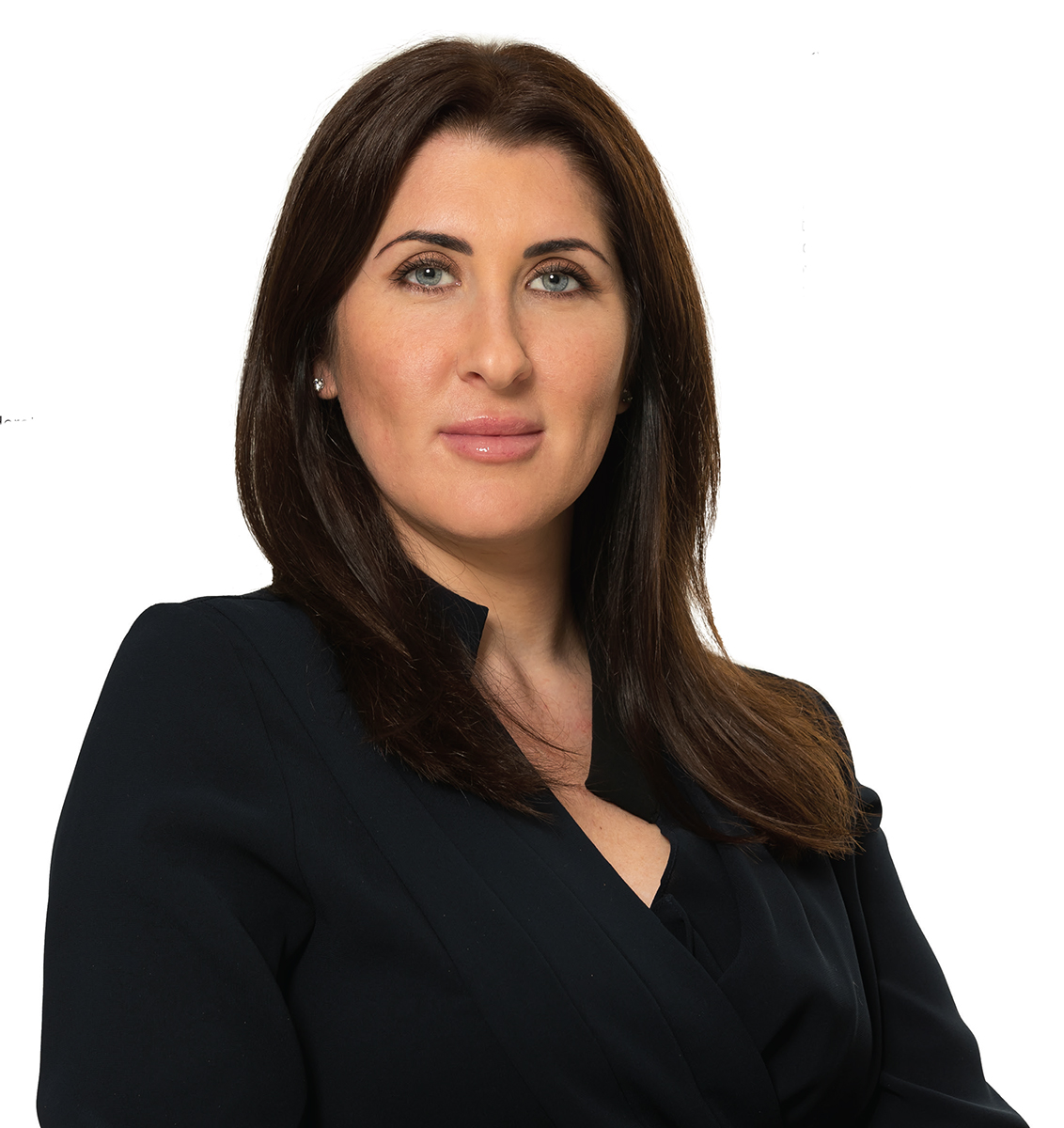
She’s well aware she doesn’t conform to any banking stereotype as she explained to Anne Moore of the Guardian; “I’m a woman. I’m 5ft tall. I’m Welsh. I’m middle-aged. I’m from a very ordinary background and I’m the sort of person who’ll chat to somebody in the ladies!” she says. “Fintech start-ups are all young white guys with goatees – usually with rich parents. People did think I was crazy, that no-one ‘starts a bank’, especially people who looked like me, but I’d reached the stage where I was prepared to fail. I was 54 and confident enough not to care if somebody said I was stupid.”
Back then, it wasn’t something she discussed in depth – though financial journalists always asked her about it. Now, though, she has written the whole gory story in a “business tell-all”, a banking blockbuster – however unlikely that sounds. It’s the tale of a 50-something woman who wants to create a new kind of bank, but needs millions of pounds just to get started. It takes her over two years, but in 2017 she gets there. Her bank, Starling, has won Best British Bank at the British Bank Awards for the past three years. It was the only challenger bank to get through 2020 bigger and stronger than it had been at the start – and it’s on course to become profitable by December. This year, Boden was invited on to the UK Finance Board and the Government’s Board of Trade. She’s a shot in the arm for super-chatty, middle-aged women everywhere.
Boden grew up in Swansea, the only child of older-than-average, devoted parents who supported her in whatever she did and gave her an unlimited budget to spend at the bookstore. It all went on nonfiction as Boden was fascinated by science, biographies and how the world worked.
“My father worked for British Steel, my mother in the local department store,” says Boden. “I didn’t know anyone who worked in an office, but I did well in school, studied computer science at Swansea and ended up in London working for Lloyds.” This launched a career that culminated with a move to Dublin in 2012 to join Allied Irish Bank as group chief operating officer.
Here, she began to reimagine banking. The 2008 credit crunch had devastated Ireland, banks had been seen as largely to blame but, four years on, both there and back home they had returned to business as usual, largely unchanged. “Technology had transformed how we shop, how we holiday, how we live, but banking was stuck in the past, pretending it hadn’t happened.” Boden began to picture her new kind of bank. “I knew a lot less about industry disruptors than I know now, but I understood that they worked by putting power back in the hands of the consumer,” she says. She wanted a bank without the bureaucracy, where opening an account took minutes not weeks, which delivered instant spending notifications and insights (so customers can see how much goes on rent or coffees or late-night Ubers) and helps them set and reach saving goals.
With Boden’s bank, cheques could be deposited with just a photo, there would be a handy card-lock facility for the moments customers mislaid their cards, there’d be 24-hour support – but no branches.
Is there any harder start-up than a bank? The sums required are astronomical, the regulation and red tape incredibly stringent and the big banks take care of 85% of the nation’s bank accounts. What’s more, Boden knew her face didn’t fit. “Fintech is first about finance and there are hardly any women in that,” she says. “In a boardroom of 20 people, there might be two women, often from another country.” (Boden has a theory that the surprising number of foreign female executives on FTSE boards is down to company bosses feeling more comfortable with women who don’t sound like their wife or mother.)
“Then you’ve got technology,” she continues, “and there are hardly any women in tech either. Those that are tend to be in marketing roles. When you put that together with entrepreneurship, there are very, very few women fintech entrepreneurs.” In the UK, just 1% of venture capital goes to all-female-founded teams. “I understood how it worked, but there was nothing I could do to change me. I just had to pretend it wasn’t the case.”
Armed with decades of experience and a huge volume of research, Boden left her job in 2014 and returned to the UK. With no office and no business card, Boden chased meeting upon meeting, trying to sell her vision. “I’d start each morning in a coffee shop sending emails, “I’m Anne, I’m starting a bank. Will you help me?’” The pressure was “unbelievable”, deep down, she felt like she was “begging”. She amassed hundreds of rejections. How did she cope? “By sending more emails, creating more opportunities,” she says, “and also reading biographies of successful entrepreneurs, especially ones who had almost failed.” After about eight months of solid effort, she succeeded in persuading some top firms to undertake a huge amount of work – legal, regulatory, branding – on a contingency fee arrangement, stacking up more than £1m in debt.
For eight months, everyone worked for nothing, then at the end of 2015, she was summoned to the Bahamas to meet billionaire Harald McPike, who was interested in investing in the challenger banking market.
For three days – some of it on his yacht – he fired questions at her (“The most intelligent questions I’d ever been asked about Starling.”). By the time Boden flew home, she had £48m in backing. In July 2016, Starling got its banking licence.
Starling now has 1.8m customer accounts and a staff of more than 1,000, with women filling 40% of the senior roles. Boden happily admits it takes up her whole life. “People talk about ‘work-life balance’,” she says. “I only have work – and I enjoy every minute of it.” She doesn’t cook (“I have no interest whatsoever”) and hasn’t married (“one of these days, I’ll write a book about men and dating!”). She has no children. “I never decided not to have children; as with many people, it just didn’t happen,” she says. “I think it’s important to focus on what you have rather than what you don’t. I’ve had a great career. I’ve done lots of stuff. I’m proud of what we’ve built. I wish I could help more women understand that you don’t have to conform to the stereotype to be happy, to be successful. But I’ve been extremely lucky. I had a childhood that was loving and supportive, but with no pressure to be anyone different.”
However, Starling competes against UK rivals who have more customers, such as Revolut, which claims 10 million accounts and Monzo, which notched up four million accounts earlier this month.
Starling makes its cash from a mixture of charging fees on the cards it issues, its marketplace where it charges other financial service firms to sell products on its platform, as well as using its deposits to lend. “The thing to remember is that our cost base is so small the cash we raise here is meaningful,” adds Boden.
The elephant in the room for all neo-banks is Big Tech firms such as Amazon or PayPal. These firms have deep pockets, large customer bases, and unlike high street banks, are platform companies themselves and so are comfortable with the business model. The number of fintech deals by global tech giants – including Alibaba Group, Alphabet, Apple, Baidu, IBM, Microsoft and Tencent – increased for the fifth straight year, with $3.5bn invested across 46 deals in 2019, according to last month’s KPMG Pulse of Fintech bi-annual report.
“I think Big Tech will want to distribute banking services, says Boden. “I don’t think they will want to get involved in the financial plumbing of moving money around. Or obtaining a license, that will mean more regulation, and they already face calls for more regulation as it is.”
Boden often refers back to her parents to explain her rock-solid self-belief – and one childhood memory seems to be especially telling. Whenever the adverts came on TV in her family home, her parents would both jump to their feet, grab each other and gyrate round the room – Boden would often join in. When the ads finished, everyone plopped back down again laughing. For years, Boden assumed this happened in all households and was disappointed to see when visiting friends that everyone else stayed slumped and still during commercial breaks.
I ask if she still dances to the ads. “Yes!” she laughs, “I must admit, if there’s a disco in the office or music somewhere, I’m always first on the dance floor! Everyone else is looking around, saying, ‘She’s dancing?’”
What do you think will be the real impact of regulation on the UK banking scene in the next 2-3 years?
Brexit. Over the last half century, the UK has benefited hugely from being part of the regulatory changes and innovations coming from Europe. This is particularly evident when looking at the relationship between PSD2 and the UK’s Open Banking initiative.
Going forward, whether we’ll follow what happens in the EU (maintaining compatibility with the single market) or USA (following the reformation of the Dodd-Frank Act, which aims to reduce the regulatory burden there) or carve our own path remains to be seen.
What will incumbent banks look like in 10 years?
Banks will be invisible. That’s what PSD2 and Open Banking are really leading up to – and in this future, there’s no reason why the front end of people’s financial lives couldn’t come from Facebook or Google, while the backend belongs to a bank like Starling.
Is there a need for cryptocurrency exchanges? If yes, then when do you think that will happen?
Regulating cryptocurrencies and the frameworks they exist in could create a step-change in how they work and how they achieve greater rates of adoption. Right now Bitcoin and Ethereum are often treated as private money – because there’s no real consensus on whether they’re commodities or currencies – so while it’s easy to buy crypto, it’s actually quite tricky to get back out.
Moreover, because of the huge risk anonymous trading poses, several banks have distanced themselves from it entirely (recent fines and associations with criminal funding on the dark web have not helped either). Regulation, however, could change that as it would stabilise the landscape so there could be more innovation and more education around the subject.
Cryptocurrency exchanges would make it easier to regulate and therefore should be encouraged as the sector grows over the next few years.
What will it take for true financial inclusion to become a reality in the next decade?Banks expand around the world using banking licences. But what’s becoming increasingly apparent is that banks don’t just get licences from regulators but from the people they’re trying to encourage to use them.
This is how financial inclusion goes from theory to reality – they have to do more to earn their customers. And they can start by doing more good, by stopping talk of ‘profitable’ and ‘unprofitable’ customers and understanding that everyone in the world deserves the opportunity for a healthy financial life.
This is what we’re aiming to do at Starling, because we believe fintech has a huge chance to be part of creating a financially inclusive world. Combining the power of banks with the innovation and accessibility of mobile phones and apps, fintech can address supply and demand in a completely new way, as we’ve seen with M-Pesa, for example.
However, it does mean that technology has to be affordable, internet access available, and communications understandable.
Will fintech improve the security of financial services or make them more vulnerable?
There seems to be a misconception that traditional banks and financial services are more secure than new fintechs. There is that idea of a grandiose building with large Roman columns, and the image itself is very secure and solid.
Traditional banks are built on core systems that were coded in the 1980s and ’90s, and a huge fear of overhauling these systems has to do with the fear of losing security.
Our stack is built on AWS and there is some hesitation when it comes to cloud computing. Is the cloud safe? Where is it? How do you know that someone can’t just retrieve vast quantities of data if there isn’t a physical place to guard?
But luckily, cloud computing is also highly securitised. There are a lot of companies that work specifically on cloud security such as F5, not to mention that Cisco and Microsoft also provide their own cloud security services. More than anything, I think it’s a problem of perception. What appears more secure? Plus, it doesn’t hurt that fintechs (such as Starling) offer consumer security like our most recent update with the card controls.
There are people who walk around thinking fraudsters are scamming their card details using contactless readers so they keep their cards in tin foil. Why not provide a function to turn that off when you don’t need contactless, which is what we’re doing?
Over time, helping the customer understand that giving them more control over their data can only benefit them, rather than their data being sold off to the highest bidder.
What do you think will be the areas of greatest innovation for the financial sector in the near future?
The development of branded Marketplace platforms will completely upend the financial sector. It will see a whole new level of collaboration between financial services and drive banking (particularly payments) towards invisibility.
Innovation in the development of these platforms – the business models and the technology – will be the most significant over the next few years.
Do you feel some financial-sector professionals are in denial about the change taking place in the industry? If yes, what do you think some of the most common misconceptions are among the naysayers?
When a new product penetrates the market, or a new market emerges, there are visible and unique adoption curves. With fintech, we have seen a substantial number of early adopters, both from consumers and sector professionals.
That being said, some financial-sector professionals have been less eager to adopt this readapted approach to finance, but this was to be expected. The financial sector has a well-established yet rigid legacy, and the ‘fintech revolution’ has been disruptive for more traditional financiers.
Having said this, we are optimistic that as the fintech community expands, and the information gap surrounding its purpose diminishes, we will see more professionals from the traditional school of finance espouse fintech.
What is your personal focus for the next 12-18 months? What change do you hope to implement in the industry?
Our aim is to provide everyone in the world with a healthy financial life. And therefore we have three key focuses for the next year: our current account and marketplace, our expansion, and also encouraging further industry disruption through Starling Payment Services.
By listening to and implementing the ideas contributed by our customers via our community board, our aim is to continue developing our current account to deliver as seamless and user-friendly product as possible in the coming period. While the development of our current account will be of primary focus, there will be considerable efforts towards launching our highly anticipated Marketplace feature, as well as navigating our expansion into the European market.
The launch of Marketplace will allow our customers to tailor their financial life through in-app integrations with other financial-service apps. Our primary concern is ensuring that our customers have healthy, viable relationships with their money. We are so excited about the implementation of Marketplace because it will give our customers better control over their everyday money and the way they live their lives.






